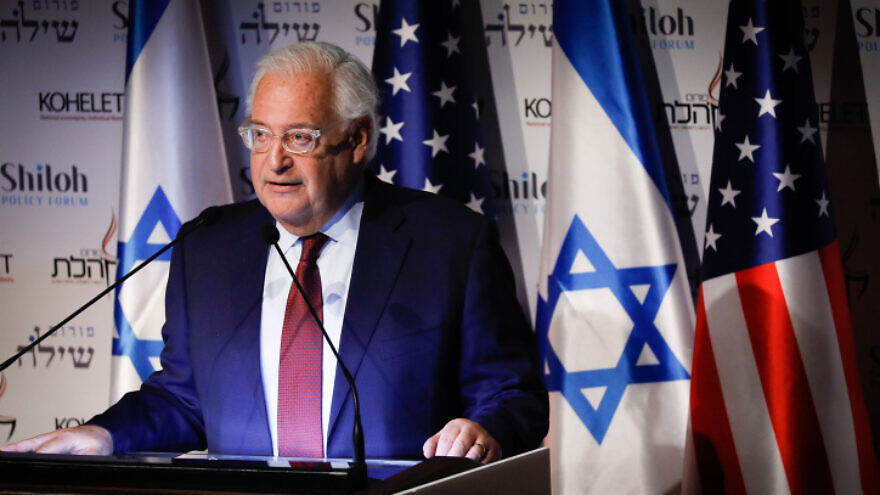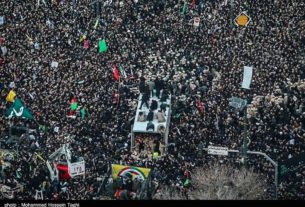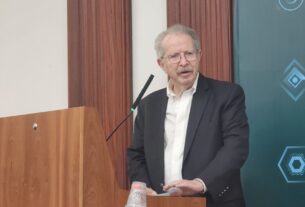Photo Credit: Olivier Fitoussi/Flash90

(JNS) It’s not often that the public hears major announcements from leaders. So when a number of top American and Israeli political figures appeared at last week’s Kohelet Policy Forum in Jerusalem, it was clear they had something important to share. The conference focused on the aptly named “Pompeo Doctrine,” a statement by the Trump administration in November that Israel’s settlement enterprise is not illegal under international law.
U.S. Secretary of State Mike Pompeo, speaking in a recorded address, opened the conference by announcing that the United States is “disavowing” the 1978 Hansell Memorandum, a State Department memo that claimed Israeli settlements violate international law.
‘);
_avp.push({ tagid: article_top_ad_tagid, alias: ‘/’, type: ‘banner’, zid: ThisAdID, pid: 16, secure: true });
This was the first major development announced at the conference.
Pompeo said, “We’re recognizing that these settlements don’t inherently violate international law. That is important. We’re disavowing the deeply flawed 1978 Hansell memo, and we’re returning to a balanced and sober Reagan-era approach.”
U.S. Ambassador to Israel David Friedman spoke at the conference and confirmed that U.S. policy also states that “Israelis, Jews have the right to live in Judea and Samaria.”
He highlighted the three major long-standing issues that the Trump administration has changed. First, the U.S. officially recognized Jerusalem as the capital of Israel and moved its embassy there. Second, the United States recognized the Golan Heights as sovereign Israeli territory. Third, the United States has now recognized that Israeli communities in Judea and Samaria do not violate international law.
Regarding the resolution of the Israeli-Palestinian conflict specifically in terms of Judea and Samaria, Friedman said “the proverbial goal posts have moved and moved—to the point today where they are no longer even on the field.”
Friedman went on to say that “the Pompeo Doctrine does not resolve the conflict over Judea and Samaria, but it does move the goalposts back onto the field. It does not obfuscate the very real issue that two million or more Palestinians reside in Judea and Samaria. … The Pompeo Doctrine says clearly that Israelis have a right to live in Judea and Samaria. But it doesn’t say the Palestinians don’t. Rather, it calls for a practical negotiated resolution of the conflict that improves lives on both sides.”
The second somewhat big announcement was by Israeli Prime Minister Benjamin Netanyahu when he repeated his previously declared pledge that his government “will not allow the uprooting of any community, Jewish or Arab, under any peace plan.”
“The principles are simple,” he said. “Israel has and will continue to have security control west of Jordan, Jerusalem will never be divided, and settlements will not be uprooted.”
The third piece of interesting news was announced by Israeli Defense Minister Naftali Bennett. He told the conference that he is establishing a special task force to prevent illegal Palestinian construction in Israeli-controlled areas of Judea and Samaria, known as “Area C.”
Bennett also announced that he would work to develop and legalize unauthorized outposts throughout Judea and Samaria.
These three important announcements are major and positive developments for those who believe that Israel is on the right side of history.
Avi Bell, an Israeli professor of law at the University of the San Diego School of Law and at Bar-Ilan University in Ramat Gan, told JNS that what Pompeo said was “very simple and obvious.”
“The real question,” said Bell, “is why does he have to say it at all? It is a wonderful act of courage for him to say that simple truth [that settlements are not illegal according to international law]. Of course they are not, per se, illegal!”
Eugene Kontorovich, director of international law at the Kohelet Policy Forum, was deeply satisfied with Pompeo’s declaration. “American policy is now clearer than ever; Jews living in Judea and Samaria is not a crime,” he told JNS.
“For decades, the obscure Carter-era memo was used as justification for anti-Israel policies, despite the fact that its conclusions were rejected by subsequent administrations,” he said. “Pompeo’s statement makes clear the U.S.’s wholesale rejection of the legal theory that holds that international law restricts Israeli Jews from moving into areas from which Jordan had ethnically cleansed them in 1949.”
“The notion that it is not a war crime for Jews to live in the areas of Judea and Samaria is not rocket science. It is not an exotic position,” he added.
Kontorovich noted that there are plenty of people who argue that it’s impossible to present Israel’s side since the international community has already made up its mind that settlements are illegal, and that Judea and Samaria is not “disputed,” but rather “occupied.”
“That treats our international and diplomatic rights like a game show. If international law were a game of ‘Survivor,’ we would have been voted off the island a long time ago,” he quipped. “But it is not. There are principles, and those principles need to be consistent across context, and they are demonstrable.”
“I hope soon other countries will also follow the visionary leadership of President Trump and Secretary of State Mike Pompeo,” he said.
‘);
_avp.push({ tagid: article_top_ad_tagid, alias: ‘/’, type: ‘banner’, zid: ThisAdID, pid: 16, onscroll: 10 });



